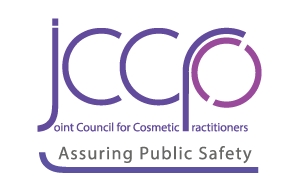There will be many factors that will influence your decision as to where to go to receive, or enquire about an aesthetic treatment. Therefore, we appreciate that it may not be Karen Lockett Clinics that you ultimately decide upon. Whilst we would of course be disappointed that it isn't us you have chosen, it is important to us, and the area of aesthetic medical practice as a whole, that you have a successful outcome.
So, how do you choose an aesthetic practitioner or clinic, especially if you don't, 'knowingly', know anybody who has received an aesthetic treatment for a recommendation? Try not to let price alone be the determining factor - there are many reasons why the cheapest, is unlikely to be the best value. But, what else can you base a decision on? Here we have put together some key facts and advice; these pointers will hopefully help guide you in the right direction ...
1. What To Look For In A Medical Aesthetic Practitioner
Your practitioner should be medically trained i.e. a Nurse practitioner, Doctor, Dermatologist or Cosmetic Dentist. Ideally, they should also be a specialist in the field of medical aesthetics, with the knowledge and experience that brings.
Don't be afraid to ask how long the practitioner has been performing medical aesthetic treatments, and how many of the particular procedures that you are interested in have they successfully carried out. As with most, if not all professions, the more experience a practitioner has had, the better.
i. Medical RegistrationAs a minimum, make sure your practitioner is registered with their respective medical governing body; this will ensure that they are working within a professional code of conduct.
Nurse Practitioner
For example, as a registered nurse, Karen is registered with the NMC (Nursing and Midwifery Council) - this can be checked by carrying out a search on the NMC Register.
As a nurse practitioner, Karen has had to gain additional qualifications in order to legally prescribe medication (a requirement for anti-wrinkle treatments such as Botox). This can also be checked on the NMC Register - denoted by Nurse Independent Prescriber listed in Recorded Qualifications.
Doctor
A doctor should be registered with the GMC (General Medical Council) - this can be checked by carrying out a search on the List of Registered Medical Practitioners.
Dentist
A dentist should be registered with the GDC (General Dental Council) - this can be checked by carrying out a search on the GDC Register.
Any medical practitioner not working within their code of practice risks losing their medical registration: ‘being struck off’.
A non medically trained person, will have no medical governing body to which they are answerable. If they fail to meet professional obligations and standards, there are no major consequences in terms of their professional career, a 'nothing to lose' attitude could therefore be taken.
ii. Professional AssociationsWhist medical registration is a minimum requirement, membership of professional associations and bodies is in many respects as equally important. Why? Any professional organisation will require it's members to conform to set rules and expected standards. Additionally, members will expect fellow members to conform to these rules and meet the required standards of membership. The BACN and RCN are examples of such professional bodies.
Be wary of clinics not registered with a professional association or body, as this allows a free rein in many ways - both in terms of actual treatment and non-treatment activities. For example, in the area of marketing, unrealistic claims of what can be achieved and/or exaggerated claims of a practitioners skill level can often be made.
iii. Historical Record of Continuous TrainingYour practitioner should be able to demonstrate a continuous history of training in their field of speciality - the longer the better. Try not take statements such as "Harley Street Trained" or "Advanced Training Undertaken" in isolation: the address of a course can have little, or no, baring on the quality of teaching; and be cautious when the fact that one or two "Advanced Training Courses" undertaken, is being overly 'hyped'.
A record of ongoing, recognised, speciality training should be seen as the norm. This should be considered in combination with points i. & ii. above, together with a practitioner's experience and longevity.
2. What To Look For In A Clinic
The clinical environment should be clean, professional and ‘un-pushy’. You should not feel that you are being rushed into having any treatment; you should be allowed to make an unhurried, informed decision.
You should be offered the opportunity to go away and take some time think about whether or not you wish to go ahead with a treatment; if you want to go ahead and have a treatment at this time, then this is appropriate if it is your decision.
3. What to Avoid in a Clinic
Avoid clinics, or practitioners, overtly marketing Botox, offer Botox Promotions or Botox Parties - these practices are, at the very least, unprofessional.
1. Botox Marketing
2. Botox Promotion
3. Botox Parties
We quote Botox, as it is the most commonly mentioned, but the same applies to any of the wrinkle relaxing injection 'products' - Vistabel, Azzalure, Bocouture - as they are all Botulinum Toxins; please see our Anti-Wrinkle Treatments page for further explanation.
Dermal Filler Treatment Promotion
The same applies to dermal filler treatment deals and promotions. For instance, a clinic with a "pay for two areas of dermal fillers, get the third area free" offer, is actually breaking the law: it is illegal to promote cosmetic procedures in manner that might 'coerce' a client into receiving more treatments than they initially intended, or even more importantly, than is necessary ...
If you would like further information with regard to these issues, you can read more on 'Discount Botox'
and 'The Legality of Botox advertising' on Karen's Blog pages.
4. Check for Insurance
Ensure that any practitioner that you see, has insurance that covers the procedures that they are offering. This medical indemnity insurance will cover you if something goes wrong.
Additionally, and related to the section above, ask to see the medical and professional qualifications of your practitioner. If these are not available, you will be taking unnecessary risks - only if the correct qualifications/affiliations are in place and up to date, will any insurance be valid.
If you would like further information on any of these matters
- please feel free to get in touch -







